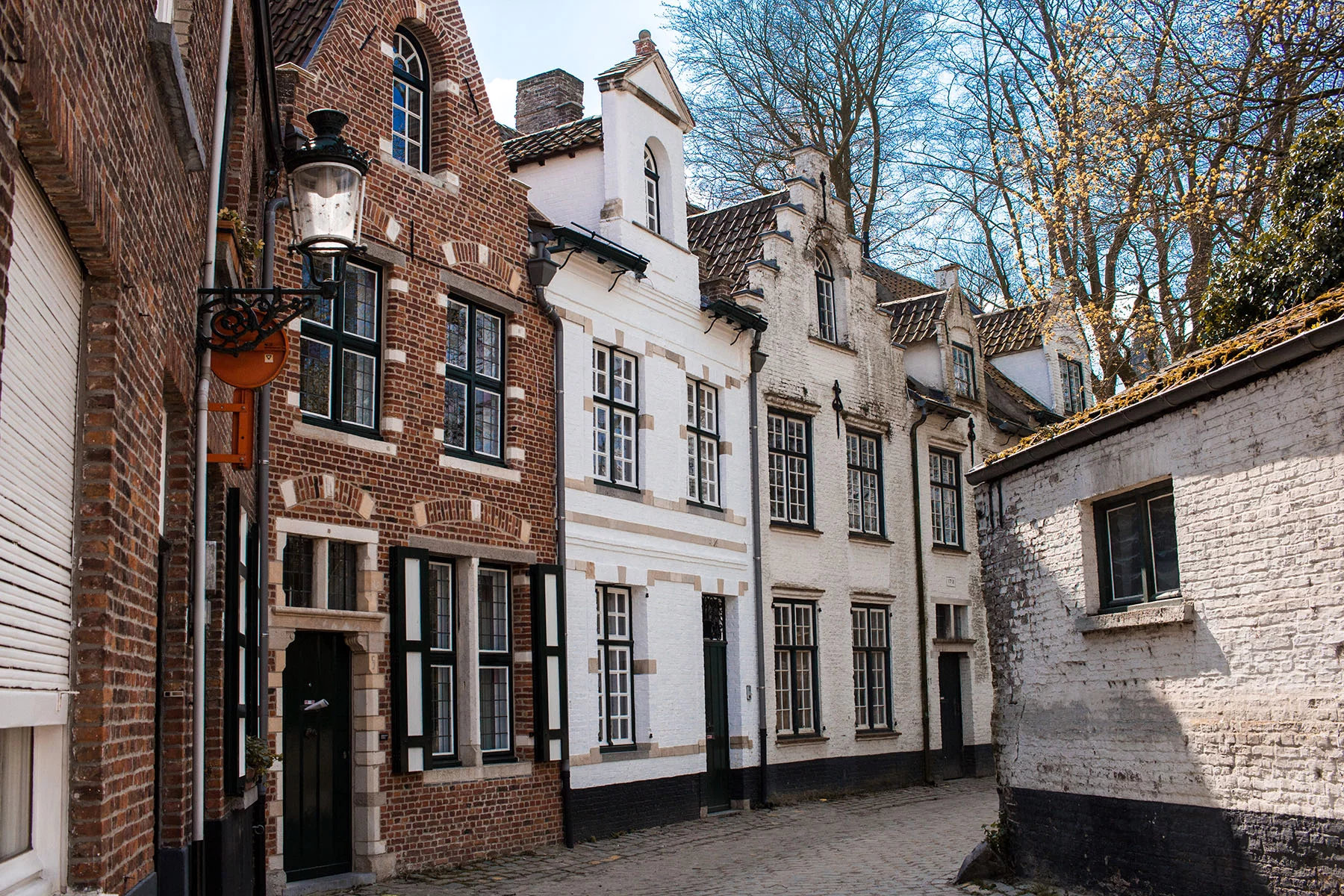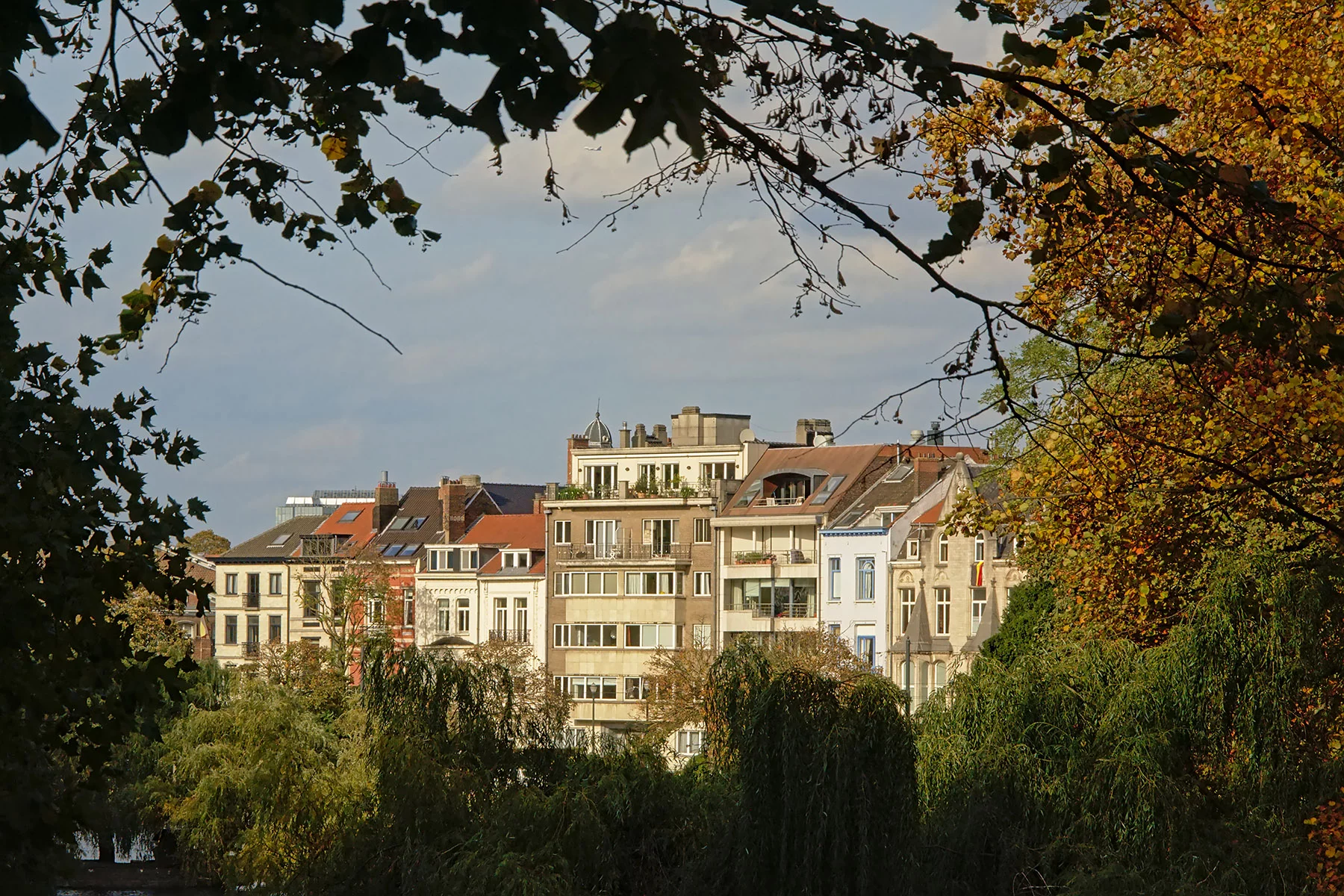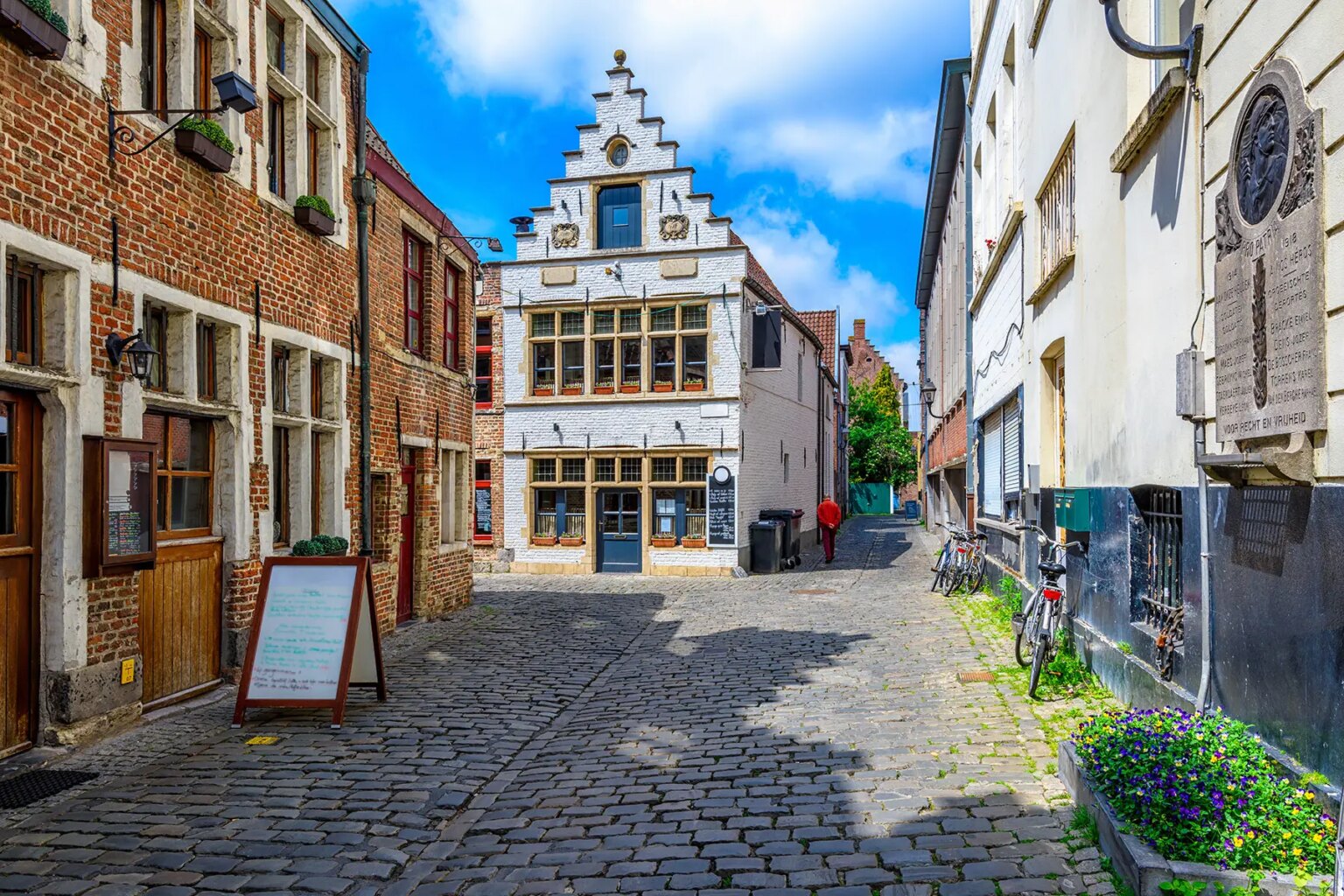If you’re buying a home in Belgium, you’ll need a good understanding of the country’s mortgage system. While mortgages in Belgium aren’t radically different from those in many other European countries, there are some unique elements you’ll need to be aware of.
This guide to Belgian mortgages covers all the essentials, with sections on the following:
- Mortgages in Belgium
- Can you get a mortgage in Belgium as a foreigner?
- Mortgage rates in Belgium in 2025
- How much can you borrow for a Belgium mortgage?
- Types of mortgage in Belgium
- Mortgages for other purposes
- Green mortgages in Belgium
- How to apply for a mortgage in Belgium in 2025
- Help getting a mortgage in Belgium
- Mortgage fees and costs in Belgium
- Taxes and tax relief on mortgages in Belgium
- Do you need property insurance to get a mortgage in Belgium?
- How do mortgage repayments work in Belgium?
- Refinancing a mortgage in Belgium
- Useful resources
Medirectbank BE
Get more from your money with MeDirect. This Belgian savings and investment bank is home to financial experts who can help you expand your investment portfolio and track your stocks and shares. Enjoy in-app accessibility and let your money work for you with MeDirect.
Mortgages in Belgium
Belgium has been experiencing an increase in interest rates since the end of 2022, which has impacted on the mortgage market. According to recent European Mortgage Federation data (2024), the number of new housing loans in Belgium was 30% lower in 2023 than in the previous year.
Having said that, there were still nearly 180,000 new mortgages throughout Belgium in 2023. Most of these were fixed-interest rate loans provided through Belgian banks. It is also possible to get a mortgage in Belgium with other financial companies, for example some insurance companies.
Most mortgages in Belgium last for between 10 and 25 years, with the maximum term offered usually being 30 years.
Can you get a mortgage in Belgium as a foreigner?
There are no restrictions on foreigners buying properties in Belgium, though the tax rules do differ depending on whether or not you’re officially a resident or non-resident.
Similarly, foreign residents can usually obtain a mortgage in Belgium without too much problem. Non-residents can also apply for a mortgage, although criteria may be slightly more stringent with many banks.

Financial requirements for a mortgage in Belgium
Requirements may vary between financial institutions, but in general you will need to show:
- Proof of income, in the form of employment payslips or bank statements, showing that your monthly repayments won’t exceed 35% of your monthly income
- Evidence that you can pay the required deposit, which is usually 15–20% of the property value
- Good credit history, in other words no outstanding bad debts
- Residence permit, if you are getting a mortgage from a bank that has Belgian residency as a requirement
Mortgage rates in Belgium in 2025
Mortgage rates in Belgium are linked to the National Bank Lending Rate. This rate is the average interest charged on loans by commercial banks to private individuals and companies. The rate rose from a record low of 1.49% in April 2022 to a record high of 5.52% in October 2023. Since then, it has steadily fallen to reach 3.52% in June 2025.
The average mortgage interest rate in Belgium in 2023 was 3.6%, below the EU average of 4.7%.
How much can you borrow for a Belgium mortgage?
As you might expect, the best Belgian mortgage rates are only available to people with bigger deposits. Some banks offer deals at a maximum of 85% loan-to-value. However, an increasing number of loans are available for people with smaller deposits.
Belgium doesn’t have a legal maximum loan-to-value (LTV) mortgage limit, also it’s rare to find banks willing to lend 100% of the funds needed. Most banks have a cap of between 80–90%. Non-residents and buy-to-let investors usually have to provide a bigger percentage deposit.
Most banks will also want to check that your monthly repayments are limited compared to your earnings. In general, you will need to show that your total regular outgoings (mortgage plus other debts) don’t exceed 35–40% of your monthly income.
Belgian mortgage calculator
You can calculate how much a mortgage might cost you in Belgium by using the mortgage calculator from ING Belgium.
Types of mortgage in Belgium
Mortgages in Belgium tend to fit into one of these three types: fixed-rate, variable-rate, and combined-rate.
Fixed-rate mortgages
Fixed-rate mortgages involve paying the same amount every month for the duration of your loan. This protects you against any changes in interest rates or the wider property market. Most mortgages in Belgium are fixed-rate mortgages.
Variable-rate mortgages
Variable-rate mortgages go up and down in cost depending on the market, meaning you won’t necessarily pay the same amount every month. These deals are more risky, but can work out cheaper for some borrowers.
Combined-rate mortgages
Combined rate deals offer a reduction on the rates offered on other mortgages but can be subject to borrowers meeting certain conditions – such as opening a bank account with the lender or taking out mortgage insurance.
Mortgages for other purposes
You can get a range of mortgages in Belgium for purposes other than buying a home to live in. These include:
- second mortgages for holiday homes or buy-to-let
- commercial mortgages for business purposes
- home renovation mortgages

Terms, conditions, and eligibility for these mortgages will depend on your personal circumstances as well as the exact type of mortgage you need.
Green mortgages in Belgium
Some Belgian banks and financial institutions offer green mortgage options with beneficial rates. These include BNP Paribas and KBC Bank. In order to qualify, you will need to be buying a property with a good energy rating (typically with an Energy Performance Certificate of A or B). Many banks also offer discounted home renovation loans if you want to make a property more sustainable.
The Brussels-Capital region has also started up a Brussels Green Loan Scheme where buyers can get zero or low-interest loans for energy renovation purposes.
How to apply for a mortgage in Belgium in 2025
Before you apply for a mortgage in Belgium, you will need to carry out a few initial steps:
- Find a suitable Belgian property and make an offer
- Check that you can afford a mortgage on the property using a mortgage calculator
- Research your mortgage options with banks, mortgage brokers, and other financial institutions
Once you have chosen the mortgage you want to apply for, you will then need to submit your mortgage application. This requires gathering certain documents including:
- Proof of income, e.g. bank statements or employment slips
- Personal details, e.g. valid identity document and proof of address
- Residency card, if you are applying as a Belgian resident
Your lender may also require a valuation survey on the property. If this is the case, you may have to pay for a full structural survey carried out by an approved surveyor.
You will also need to get the mortgage notarized and registered with the local mortgage registrar. Once this is all done, your lender will transfer the loan to you after you have signed the necessary paperwork. The whole process usually takes between two to eight weeks.
Through a bank
Belgian banks provide the vast majority of mortgages in Belgium. Banks offering mortgages to expats include:
- ING Belgium
- KBC Bank
- BNP Paribas Fortis
- Belfius
- Crelan
If you are a non-resident looking to get a Belgian mortgage, it’s a good idea to open a Belgian bank account.
Through a mortgage broker
Another option is to apply for a mortgage through a specialist mortgage broker. The advantage of using a broker is that they can often find good deals, will take care of a lot of the paperwork, and generally provide services in English. Mortgage brokers in Belgium helping foreigners secure home loans include:
Help getting a mortgage in Belgium
The regional governments in Belgium provide some mortgage support. This is typically through low-cost housing loans or reduced registration duties to low earners or first-time buyers. You can check information on the Flanders, Wallonia, and Brussels websites.
Some banks also offer mortgage support for households with financial difficulties. These tend to be temporary measures such as deferred capital repayments. Check with your lender about what schemes might be available if this is a concern for you.
Mortgage fees and costs in Belgium
The fees associated with Belgian mortgages typically include:
- Registration duty – usually around 1% of the mortgage amount plus a small registrar fee
- Notary fees – usually a fixed fee of €250 plus a small percentage (less than 1%) of the mortgage amount
- Bank administration costs – varies across lenders
- Property valuation costs – often included within the bank admin costs if carried out
You will usually have to pay these fees at the point of taking out the mortgage, so they may be deducted from the loan amount paid into your account.
Taxes and tax relief on mortgages in Belgium
In addition to registration duties, the federal government in Belgium charges a mortgage tax of 0.3% of the amount guaranteed by the mortgage.
Mortgage tax relief in Belgium is administered by the regional authorities. The general tax relief on mortgages for primary residences has largely been phased out across the country and replaced with a reduction in registration duties. The amounts and thresholds vary across the regions. For example, the reduction is currently capped at €1,520 per year in Wallonia, whereas in Brussels it only applies to the first €175,000 of the purchase price and if the total value of the property is under €500,000.
Do you need property insurance to get a mortgage in Belgium?
Although insurance isn’t a legal requirement when you buy property in Belgium, most mortgage providers will ask that you take out building insurance to protect against damage. You can also choose to buy contents insurance to cover your personal possessions, or a combined home insurance policy that includes both the building and its contents.
How do mortgage repayments work in Belgium?
In Belgium, you will normally begin repaying your mortgage the month after you take it out. Repayments consist of paying off a portion of the amount borrowed along with an amount of interest accrued over an agreed period of time.

You can usually choose to make extra payments or repay the full mortgage amount early, however there may be early repayment charges. Check these with your lender.
If you experience difficulties repaying your Belgian mortgage, contact your provider as soon as possible. They may be able to offer a solution, for example:
- Providing you with a temporary break or reduced payments for a set period
- Extending the mortgage repayment period
- Allowing you to renegotiate the mortgage terms, for example moving to a variable-rate mortgage if you are on fixed-rate terms and interest rates are currently low
The important thing is to address the problem as early as possible rather than ignore it and miss your payments. If this happens, your lender may initiate legal proceedings such as applying for a repossession order through the courts.
Refinancing a mortgage in Belgium
It is possible to refinance a Belgian mortgage, through taking out a fresh mortgage with a new lender or renegotiating your existing mortgage with the same provider. You might want to do this for various reasons, for example:
- To take advantage of better terms or interest rates
- Using equity on your home to finance renovations or improvements to the property
- To consolidate other debts into your mortgage in order to simplify your finances
Bear in mind that mortgage refinancing comes with its costs. Not only is your current lender likely to apply early exit fees, but you will also probably be hit with fresh administration fees as well as a new set of notary fees and registration taxes. This is why it’s useful to weigh up the pros and cons, and maybe seek professional advice, before deciding to refinance a mortgage in Belgium.



